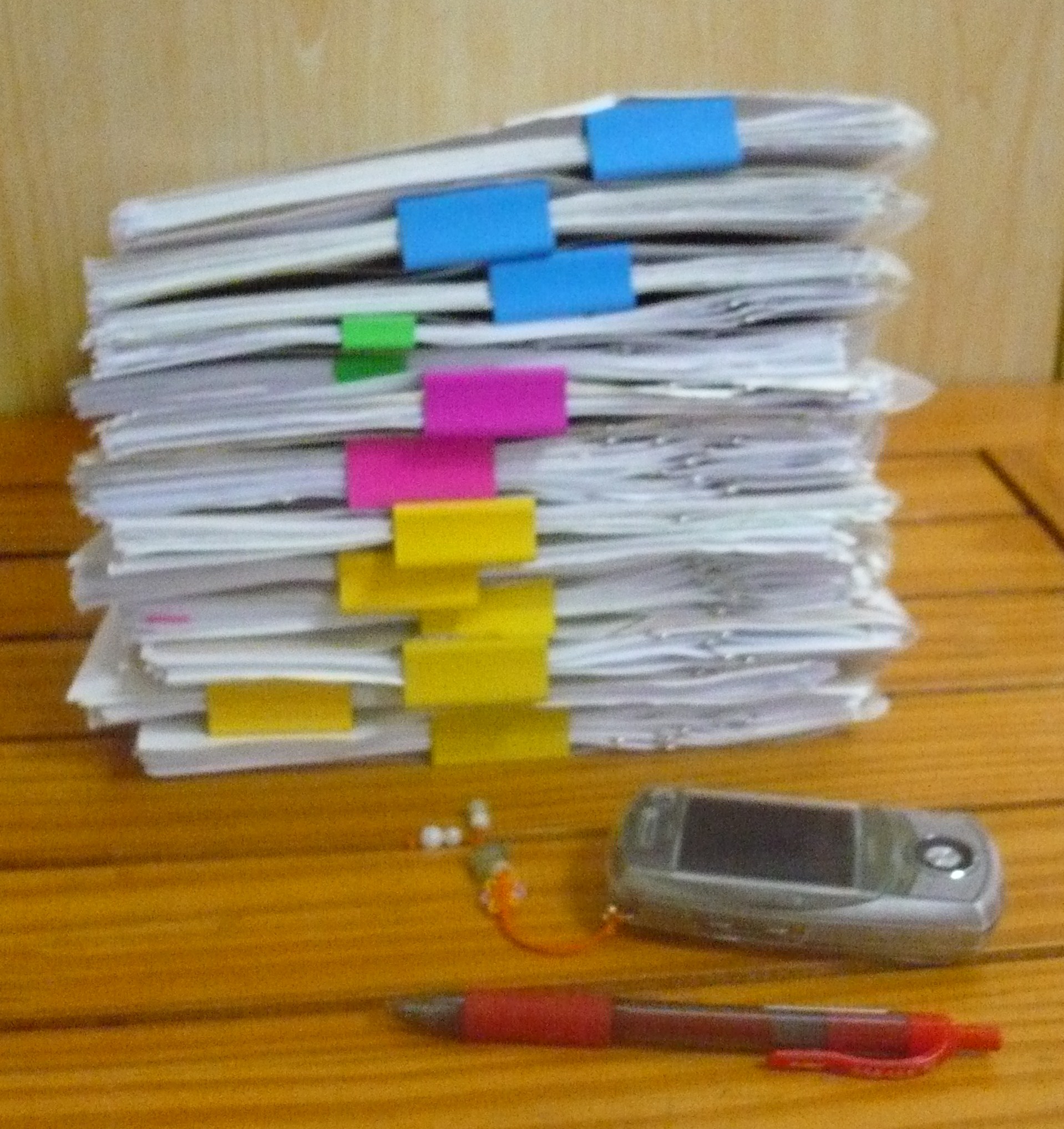I have long been drawn to the idea of zen-like meditation. But the fact is that I have a stunningly un-calm mind, and efforts at traditional meditation have generally failed me.
I have been reflecting that what I need to do, to meet this challenge I currently face – these massive piles of papers to grade that seem so overwhelming – is to somehow cultivate an “emptying” of my mind, around the process of having to grade student papers. Thus, I can try to turn the work with the red pen into a contemplative exercise.
Authors like Thich Nhat Hanh have written about the need to approach even the commonest of daily tasks – such as, say, doing the dishes–with a contemplative and calm and fully focused mind. And I’m not one of these people who naively believes meditation (zen-like or otherwise) requires paraphernalia of any specific kind, mental or physical. “Any activity done mindfully is a form of meditation, and mindfulness is possible practically all the time.”
 Here is picture of a typical-sized pile that I face on a weekend. So, is it possible? Can I make the massive piles of papers-to-grade into a opportunity of enter into a meditative state? I need to escape the resentment and anger I feel about it. If it turned into something calming and contemplative, wouldn’t it then be something I would be less inclined to dread and procrastinate on?
Here is picture of a typical-sized pile that I face on a weekend. So, is it possible? Can I make the massive piles of papers-to-grade into a opportunity of enter into a meditative state? I need to escape the resentment and anger I feel about it. If it turned into something calming and contemplative, wouldn’t it then be something I would be less inclined to dread and procrastinate on?
![]()

That picture of your stack of student papers is one of the scariest things I’ve ever seen. No wonder you’re considering meditation. Your stack makes those stacks of dirty dishes from days of yore look like pure, unadulterated fun. Which was Thich Nhat Hanh’s point, I suppose.
Your “stunningly uncalm mind” would make meditation a fascinating experience–which would defeat the purpose of meditation, perhaps, except that meditation isn’t supposed to have a purpose. But your stunningly active and unpredictable synapses no doubt come in handy for deciphering and evaluating your students’ often stunningly creative approaches to the English language, examples of which I have enjoyed reading from time to time here.
Perhaps you could approach those papers as a large, muddy field in which several small but resplendent linguistic jewels are buried. You have to wade thru a bunch of teacherly drudgery to get to the unexpected neologisms that make your job interesting. If you find that such discoveries don’t occur often enough, well, you’re the teacher, you could tailor future assignments to encourage this sort of thing. I suppose that kind of approach would not necessarily endear you to your superiors at the hagewon, but who better than you to inspire hidden wells of creativity and linguistic courage in those students than you? Isn’t that what language is all about?
It’s been fun writing here about things I really don’t understand that well. I hope this post doesn’t remind you too much of a student paper.
Cheers,
Bob
Dude–
I had another idea to help you out: outsourcing. Surely there is someone in Bangalore qualified to do at least some of that grading. You just have to figure out a workable interface…